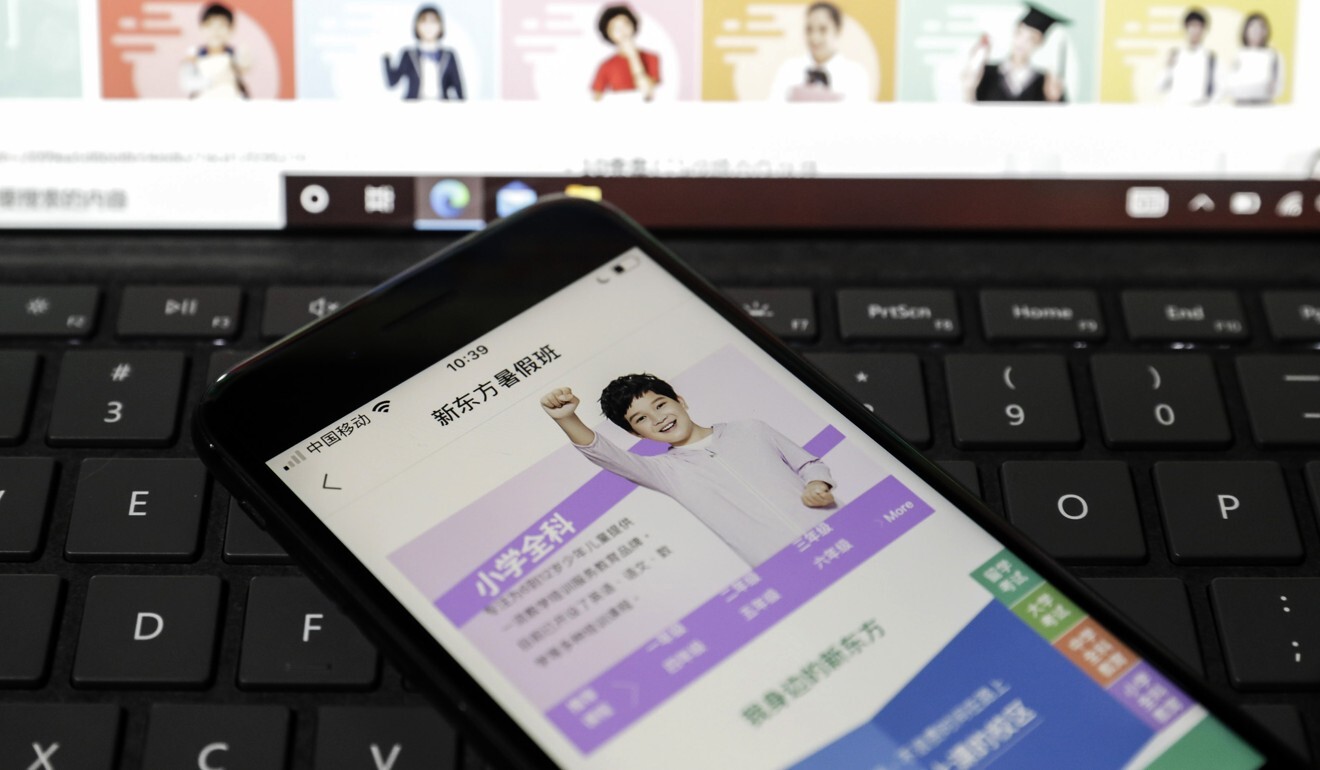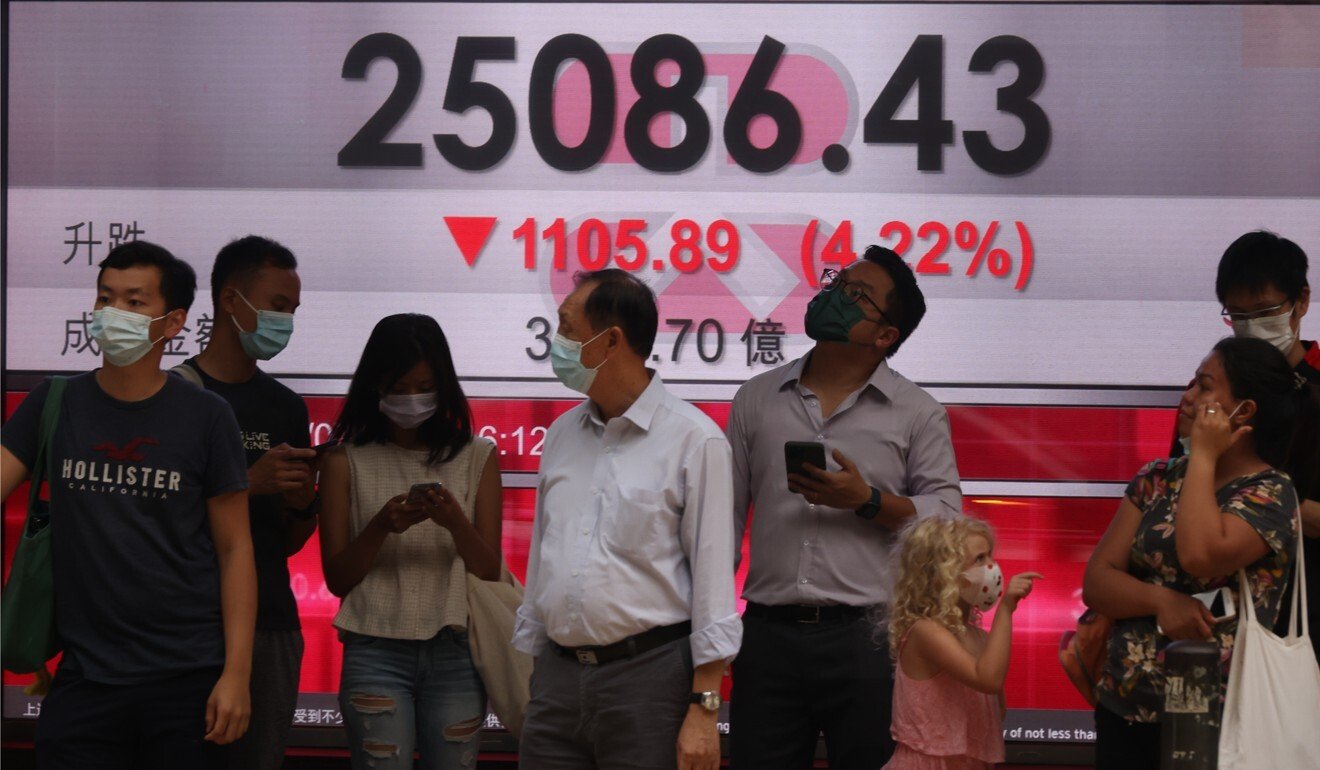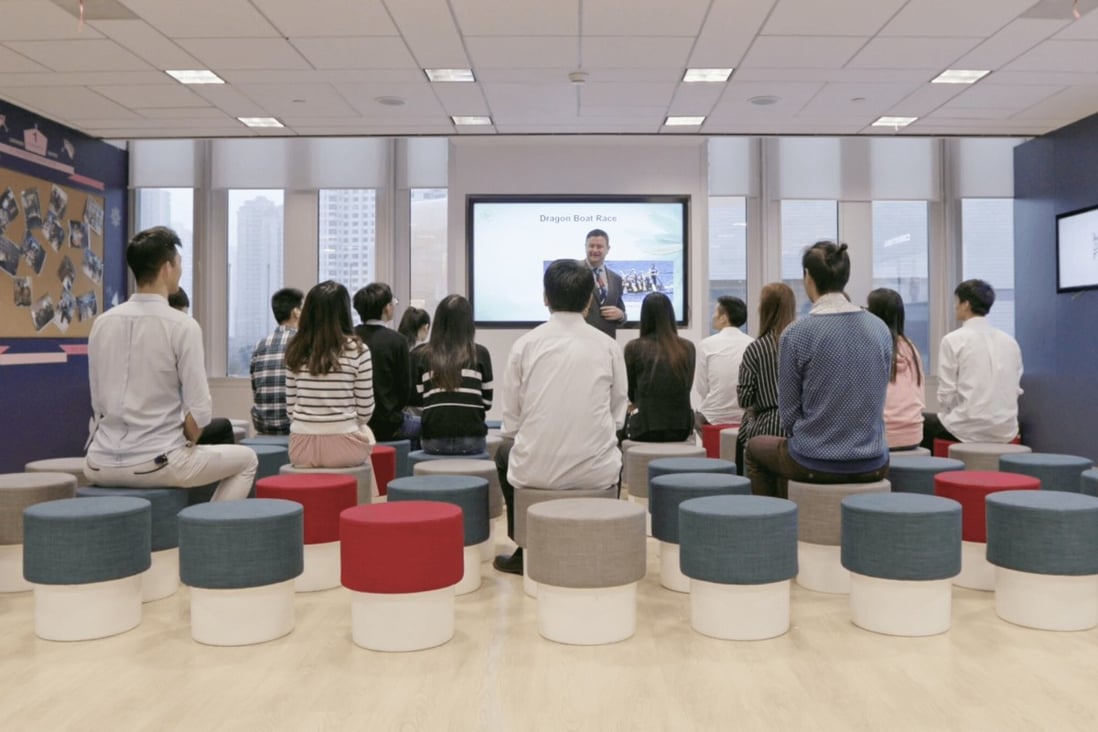Chinese tutoring schools scramble for loopholes as top-tier firm Wall Street English collapses amid crackdown
- Wall Street English, one of China’s wealthiest English tutoring companies, is expected to file for bankruptcy next week
- Private institutions are scrambling to offer services that comply with new regulations
One of the world’s most highly-respected and wealthiest English-language tutoring companies is on the verge of collapse, an apparent casualty of the central government’s crackdown on private education institutions.
Wall Street English, an Italian company that entered China in 2000, is expected to announce its bankruptcy next week , according to a report in yicai.com. At its peak, it employed 3,000 staff at 71 locations in 11 cities in China.
The report quoted an anonymous member of staff as saying that the company, which focuses mainly on adults, had laid off staff and closed centres because of the economic impact of the Covid-19 pandemic. The person said the recent crackdown on private tutoring was the “last straw”.
The State Council, China’s top administrative body, cracked down on the private tutoring industry on July 24. The government forced these companies to register as non-profit organisations, banned approvals for new companies and made it illegal for them to receive foreign investment.
It also banned tutoring during weekends, public holidays and school holidays.
The policy change is ostensibly to crack down on excessive studying for young Chinese students. It only applies to kids in primary and early secondary school because high school is not mandatory for children in the mainland.
In June, Wall Street English and three other tutoring companies were fined by the Shanghai government over “false advertising” for a total of 10 million yuan (US$1.5 million), widely believed to be the initial rumblings that a crackdown was imminent.
Wall Street English did not respond to interview requests from the South China Morning Post.
In early August, the tech giant ByteDance closed its education platforms, including Guagua Long, Qingbei and GoGoKid, and laid off all its staff working for them, according to Bloomberg.
In the immediate aftermath of the crackdown, companies across China have been grasping at loopholes to stay afloat.
A marketing executive named Chuxin, a pseudonym, who works for TAL Education Group, a leading K-12 after-school tutoring services provider in China, said they are altering their content to respond to government policies. The changes included teaching children only on weekdays, never on weekends and using recorded tutoring videos.
“What is painful for us is that you find that education has been demonised,” she said. “It will affect our future development, and some people will not have a high opinion of teachers any more.”

Another example of a company adapting to the ban is New Oriental Education, one of the biggest English tutoring companies in China, which announced that it had established a Beijing centre to help parents “master scientific parenting methods”, including how to help their children allocate their time and control their emotions.
Yuanfudao, a Tencent-backed company that was valued at US$20 billion in 2020, announced in late July a new brand called “Pumpkin Science”, which would “guide” students in the field and be less hands-on than traditional tutoring.
The rich kids certainly will not stop studying, whether by a private tutor or other ways.
While the crackdown has been disruptive, there is no denying that the private tutoring industry had become a dog-eat-dog world, placing immense pressure on parents and students who were worried about being left behind by society along with the tutors meant to teach them.
He Gu, a tutor for Longre Education, a company that provides English-language training, said that during her busiest hours a few years back, the teachers would teach for eight or nine hours without a break. They would often only have time for one per meal day, either lunch or dinner, never both.

She said her company had not been directly impacted at the moment because their students are looking to study abroad, but she added that parents and students are waiting to see what will happen next, describing her current situation as “a knife at the throat”.
She also thinks the policies are adding more stress to the parents.
“The rich kids certainly will not stop studying, whether by a private tutor or other ways. But for other parents, what will you do? Can you afford it?”





No comments:
Post a Comment
Note: Only a member of this blog may post a comment.